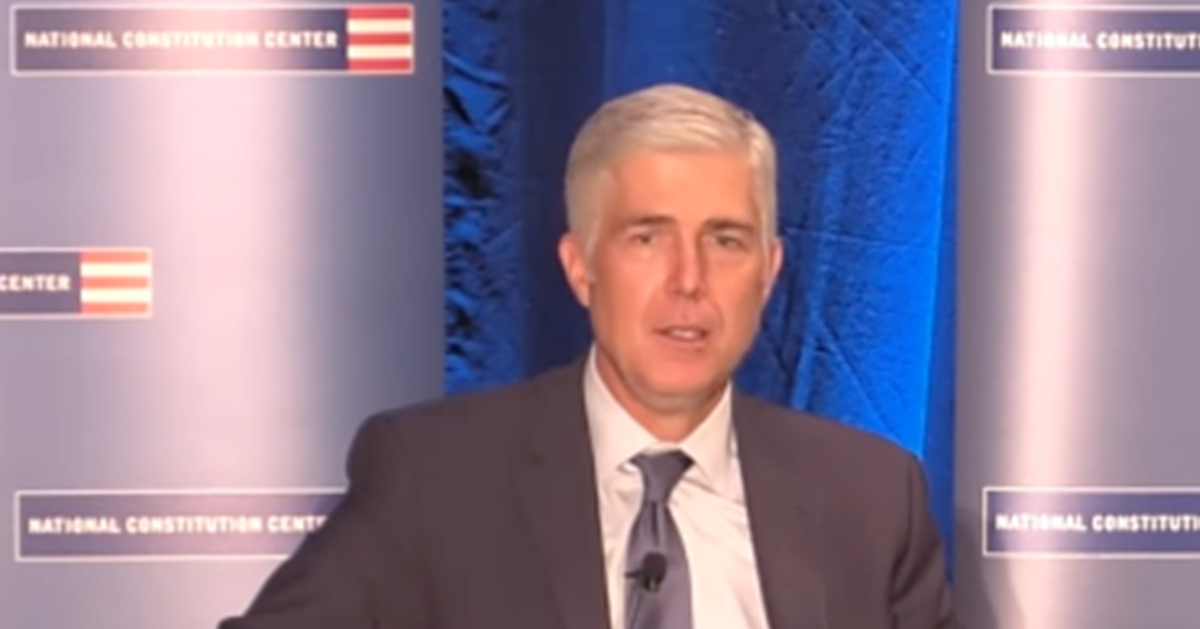Future of House Speaker Mike Johnson in Doubt Amid Recent Legislative Difficulties
The leadership of Speaker of the House Mike Johnson is hanging in the balance as the new session of Congress prepares to begin on Jan. 3.
Johnson needs a solid 218 votes to retain his position, yet dissatisfaction among some House Republicans poses a threat to his leadership, as WLNS reports.
House Republicans will take their first significant vote of the new session with a razor-thin majority. This vote will potentially determine whether Johnson, a Republican from Louisiana, will continue to serve as speaker. The internal dynamics of the Republican caucus have cast doubts over his ability to muster the required votes.
GOP Divisions Threaten Stability
A contributing factor to the uncertainty is the dissatisfaction among certain allies of President-elect Donald Trump. Key figures within this faction have expressed a desire to see Johnson replaced as speaker. Steve Bannon, a prominent Trump supporter, raised questions about Johnson’s leadership during AmericaFest 2024.
At the event, Bannon criticized Johnson for attempting to cooperate with Democrats to fund the government. He argued that Johnson’s approach resulted in a spending bill that he described as beneficial to the Democrats, particularly House Minority Leader Hakeem Jeffries, calling it "1,500 pages of sellout."
The passage of this spending bill, influenced by interventions from Elon Musk and President-elect Trump, deepened rifts within the Republican ranks. Several GOP members expressed their dissatisfaction with the outcome and the legislative process in general.
Challenges in Finding Speaker Candidates
Congressman Tim Burchett was vocal about his discontent, stating, "This just stinks. It’s why America doesn’t trust government and it’s for good dadgum reason." His remarks underscore the frustration felt by some Republicans who see the larger implications of such legislative negotiations.
Amid the discontent, Rep. Thomas Massie declared his unwillingness to support Johnson for Speaker. Massie's decision highlights the obstacles Johnson faces in maintaining party unity. Concurrently, others in the party are finding it difficult to identify a suitable alternative candidate willing to take on the role.
Notably, Rep. Tom McClintock remarked on the challenge of finding someone to replace Johnson. He emphasized the daunting nature of the Speaker’s position by suggesting that anyone wanting the job might not be in their right mind.
Unlikely Potential Candidates Emerge
The contemplation of a new leadership brought forward unexpected suggestions, including the unlikely prospect of Elon Musk becoming Speaker. Senator Rand Paul hinted at this possibility, which, though unconventional, mirrors the current unpredictable political climate.
Johnson himself acknowledged discussions with Musk, light-heartedly recounting a conversation about whether Musk would consider the "hardest job in the world." Johnson addressed the situation by expressing his determination to navigate the challenges ahead.
The path for Johnson to retain his post requires securing 218 votes, an endeavor complicated by the slim majority the Republicans hold in the House. The exact count of votes remains uncertain as some party members have yet to decide where their support lies.
Undecided Votes Add to Tension
As the session nears, the question remains whether Johnson can rally his party and prevent any defections among Republican legislators. Any loss of votes would be significant given the tight majority, potentially steering the party toward an unexpected leadership change.
The political tensions within the party are reflective of a broader struggle as Republicans attempt to find a cohesive path forward amid pressing legislative demands. Internal divisions, particularly regarding funding and the role of bipartisanship, further strain unity.
Observers will be watching closely as the new session kicks off, noting the influence of high-profile Trump allies and the role they play in shaping the leadership landscape. The outcome will be pivotal not only for Johnson’s career but for legislative priorities for the GOP.
A Crucial Leadership Vote Looms
With the vote on leadership imminent, the dynamics within the House Republican caucus highlight the political tightrope Johnson must walk. The balance of power rests on his ability to maintain party support amid widespread dissatisfaction and a contentious political environment.
As the first vote scheduled for January unfolds, Johnson’s future as speaker hinges on securing the trust and backing of his colleagues. Success would signal a narrow victory over internal divisions, while failure could open the door to new leadership and further political upheaval.
The coming weeks will reveal whether the speaker can withstand the pressure and lead the party through an increasingly uncertain and divided landscape. For now, the focus remains firmly on the impending vote and the uncertainties it brings.



